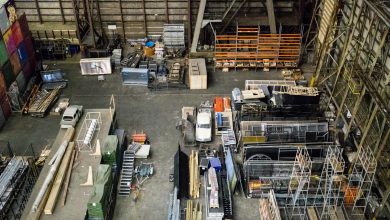The Role of Predictive Analytics in Manufacturing Business Intelligence

Predictive analytics has become a valuable tool in manufacturing business intelligence, helping organizations make informed decisions by predicting outcomes based on historical data. In this article, we will explore the role of predictive analytics in manufacturing business intelligence and its impact on operations.
What is Predictive Analytics?
Predictive analytics is the process of using historical data, statistical algorithms, and machine learning techniques to predict future outcomes. It is used in various industries, including manufacturing companies, to optimize operations, reduce costs, and improve decision-making. Predictive analytics involves identifying patterns in historical data related to the company’s manufacturing processes and using these patterns to predict future events or behavior.
By analyzing data on production, quality control, and maintenance, predictive analytics can help manufacturing companies anticipate potential equipment failures, optimize their supply chains, and improve product quality. This can lead to increased efficiency, reduced downtime, and improved profitability for the manufacturing company.
The Role of Predictive Analytics in Manufacturing Business Intelligence
Predictive analytics has several applications in manufacturing business intelligence. In this section, we will discuss the role of predictive analytics in different areas of manufacturing operations.
-
Predictive Maintenance
Predictive maintenance is an essential application of predictive analytics in manufacturing. By analyzing historical data, predictive analytics can predict when a machine is likely to fail and alert maintenance personnel in advance. This approach reduces downtime and saves costs associated with unplanned maintenance.
-
Quality Control
Predictive analytics can be used to identify patterns in data related to quality control, allowing manufacturers to detect defects in the production process early. By predicting potential defects, manufacturers can take corrective measures to ensure quality and avoid product recalls.
-
Supply Chain Management
Predictive analytics can be used to optimize supply chain management. By analyzing data related to supplier performance, lead times, and transportation costs, manufacturers can make informed decisions about sourcing and logistics. Predictive analytics can also be used to predict demand and adjust inventory levels accordingly.
-
Forecasting
Predictive analytics can be used to forecast sales, production, and other key performance indicators. By predicting future demand, manufacturers can optimize production schedules and reduce inventory costs.
Benefits of Predictive Analytics in Manufacturing Business Intelligence
There are several benefits of using predictive analytics in manufacturing business intelligence, including:
-
Improved Decision Making
Predictive analytics provides manufacturers with the ability to make informed decisions based on data analysis. By analyzing historical data and predicting future outcomes, manufacturers can make data-driven decisions that optimize operations and reduce costs.
-
Increased Efficiency
Predictive analytics can improve efficiency by identifying opportunities for process improvement. By analyzing historical data, manufacturers can identify inefficiencies and take corrective measures to optimize operations.
-
Reduced Costs
Predictive analytics can reduce costs by improving maintenance practices, reducing downtime, and optimizing inventory levels. By predicting potential failures, manufacturers can take corrective measures in advance, reducing repair costs and minimizing downtime.
Conclusion
Predictive analytics has become an essential tool in manufacturing business intelligence, providing manufacturers with the ability to make informed decisions based on data analysis. By analyzing historical data and predicting future outcomes, manufacturers can optimize operations, reduce costs, and improve decision-making. The benefits of predictive analytics in manufacturing business intelligence are significant, and its applications are continuing to expand as technology advances.




